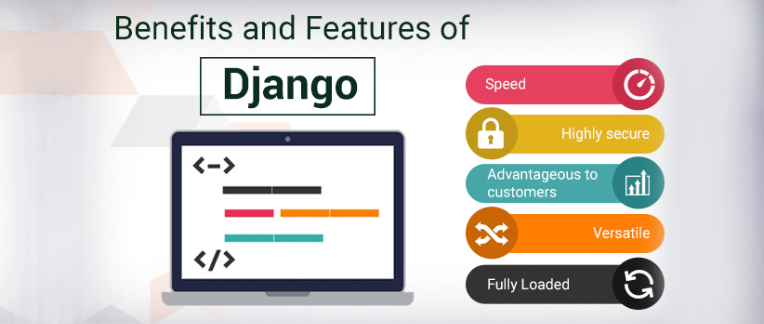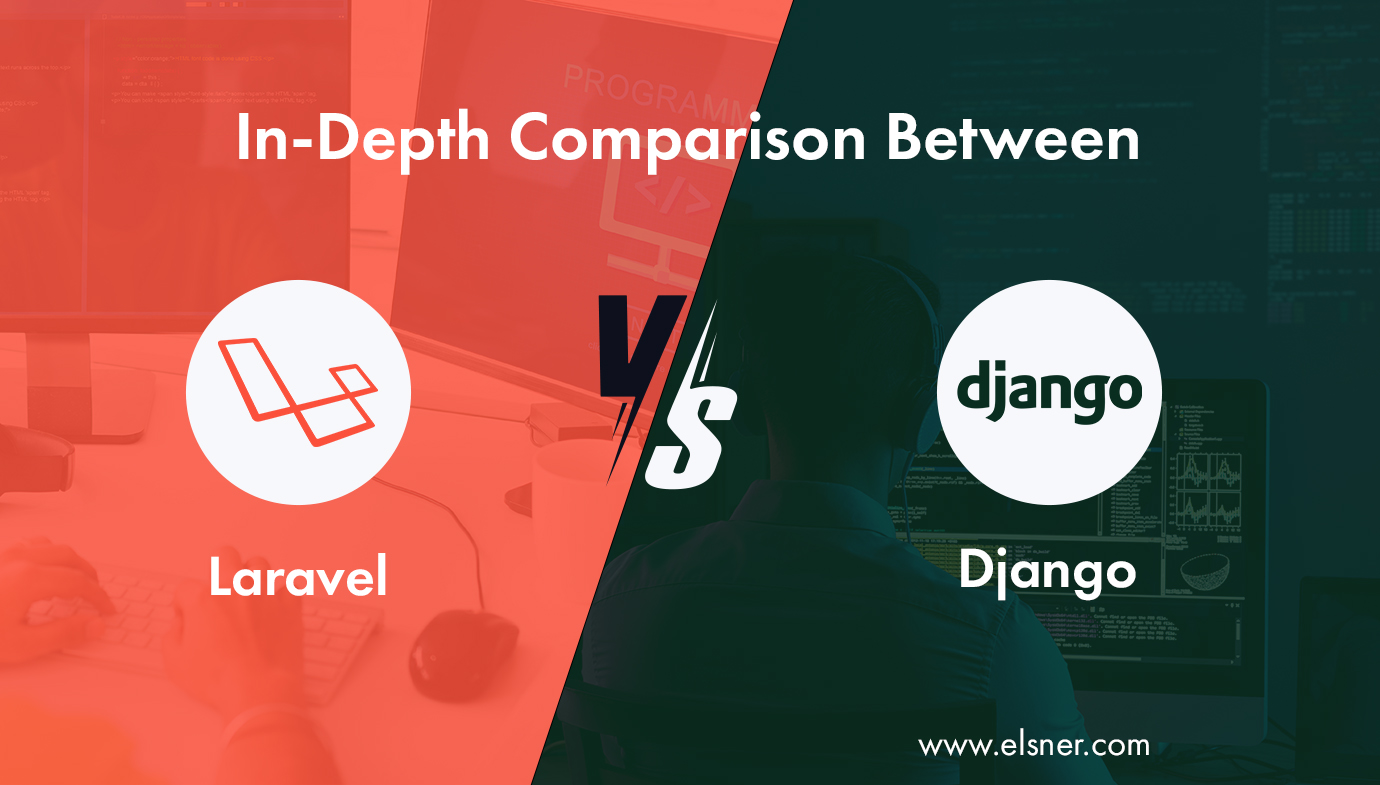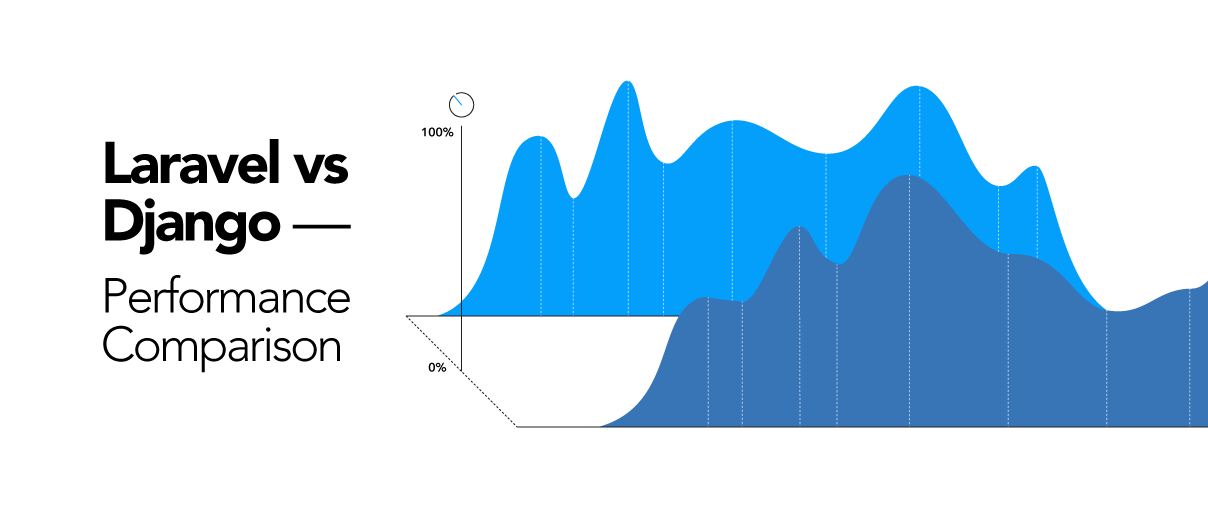Web development has received a lot of attention, and the results are developing quickly despite its popularity and the increased desire for a versatile product. Django and Laravel are two back-end development technologies widely used in the web development community.
Let’s first check what Laravel and Django frameworks are.
What is Laravel?

[Image Source: https://bit.ly/3zmU6Az]
Laravel is a web application framework with a nice and expressive syntax. Development must, in my opinion, be a fun and creative process to be truly important. By streamlining common tasks in most web projects, such as authentication, routing, sessions, and caching, Laravel aims to make development simpler.
It was created by Tayler Otwell and introduced in 2011. The framework has become one of developer groups’ most well-liked web development frameworks during the last ten years. Additionally, its built-in capabilities reduce the difficult process of creating an app from scratch and make the job of a web developer much easier, enabling businesses to provide quick Laravel development services.
What is Django?

[Image Source: https://bit.ly/3NljNaA]
Python-based Django is a very well-liked and feature-rich server-side web framework. This module demonstrates how to set up a development environment, start with Django to build your online application, and explain why it’s one of the most well-liked web server frameworks.
It provides extreme authentication, which securely handles users’ accounts and passwords. Django, a high-level Python web framework, is quicker, as a result, allowing programmers to accelerate web-based applications.
Comparison of Laravel Vs Django:
[Image Source: https://bit.ly/3FsEnUm]
Let’s discuss how businesses can use Laravel and Django according to the project’s needs. The mentioned comparison research immediately allows the user to choose between Django and Laravel confidently.
1. Security:
Laravel
Web application security is incredibly good with Laravel. The password is never saved as explicit material within the database since it uses salted password components. Additionally, the “Bcrypt Hashing Algorithm” is used to generate an encrypted password.
Django
A security framework for Django was created to “do the right things” to safeguard the website. Engineers can watch user accounts and passwords securely; as a result, avoiding blunders like risky cookie storage for session data.
2. Compatibility:
Laravel
Laravel creates commands for you using Artisan. The appropriate name conventions, interfaces, namespaces, and boilerplate code will all be put up in artisan-generated code. Additionally, if necessary, creating your code generator is fairly easy.
Django
The microservices architecture is compatible with Django. It offers quick deployment, adaptability, and security already built in. A Django project can be scaled quickly by being divided into separate microservices with distinct roles and functionalities. Django is compatible with a variety of websites because it also provides language support through its internationalization framework.
3. Scalability:
Laravel
A well-liked PHP framework for creating scalable, quick web applications is Laravel. By storing the Laravel session and cache data in a serverless Redis instance, it will discover how to scale Laravel apps in this post.
Django
Component-based “shared-nothing” architecture is used in Django. Each design component is independent of the others and may later be altered or replaced as needed.
4. Support of API:
Laravel
The main advantage of Laravel development is that it has built-in API support because JSON queries always provide results.
Django
It lacks built-in functionality. Thus, it must use the available libraries to construct the necessary features.
5. Speed Optimization:
Laravel
It has a variety of built-in features and is sturdy and reliable. However, Laravel is sluggish due to the various additional parts and functionalities. It can be difficult for programmers to develop inventive ways to make the process faster. However, the most recent versions have improved productivity and speed, making them workable.
Django
Python operates rather quickly since it is a high-performance language. It’s a high-level Python web framework, which is quicker and allows programmers to accelerate web-based applications.
6. In Demand:
Laravel
It is applied in web-based industries like telecommunications, retail, and the arts. It is widely used in 157 other countries in addition to the USA, the UK, Brazil, and China
Django
It is the preferred framework for web-based categories like science, technology, food, and beverages. It is a widely used framework in the United States, Spain, France, and 30 other nations.
7. Community Support:
Laravel
The Laravel community is big and is constantly growing and advancing.
Django
The web development community is enormous, even for Django. The community is active, and several pull requests are constantly available for review.
Conclusion
Many similarities make it easier to build apps using Django and Laravel. The web application framework, where the former supports Python and the latter PHP, is where the main distinction can be found. This results in certain terms of speed, scalability, and maintenance, and Django wins out.
Some of the built-in utilities include indicators such as SEO tools and third-party libraries. On the other hand, Laravel has simpler functionality and includes strategy infusion, making it easier to use.
So, if you are looking for any web development, then what are you waiting for? Reach out to make your requirements digital and dynamic!

Digital Transformation begins here!
Let us write your business’s growth story by offering innovative, scalable and result-driven IT solutions. Do you have an idea that has the potential to bring a change in the world? Don’t hesitate. Share with our experts and we will help you to achieve it.





